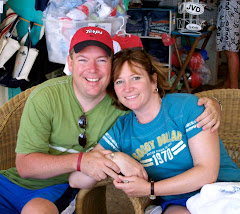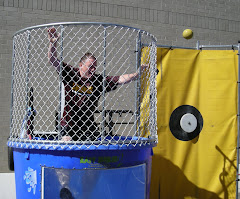Skittles, a 6-month-old diamondback terrapin, has made quite a splash at Wilde Lake Middle School this year.
The school is using Skittles as a way to teach students about environmentalism, scientific research and the importance of higher education through the National Aquarium in Baltimore's "Terrapins in the Classroom" program.
The school received the hatchling in October after Amy Musgrave, a sixth-grade science teacher and team leader, attended training through the aquarium and the Maryland Environmental Service in September. The students named it shortly after its arrival.
The program allows the students to feed it and measure it, while housing the young terrapin at the school for the majority of the academic year.
All the data are passed along to Dr. Willem Roosenburg, an associate professor at Ohio University who is working in conjunction with the National Aquarium.
In April, Skittles will be given back to the aquarium so that the terrapin can be tagged and its gender determined. (Terrapins are nine to 12 months old before they can be seen to be male or female.)
"They love it," Musgrave said. "They love watching it eat and swimming around. They ask questions about it nonstop."
In May, Skittles will be released on Poplar Island, a man-made habitat.
"We're really committing them to authentic scientific research," Musgrave said. "It's real data that they are sending to scientists. It's not just them doing it for fun."
Musgrave knew her students were hooked when a slew of them flooded her with questions about Skittles' well-being while classes were out during winter break.
"They worried about what would happen to it during winter break," Musgrave recalled. "They absolutely love it."
The school, which has stepped up its environmental awareness in the past couple of years, was the perfect site to house Skittles. Musgrave's Aqua Havens club has been growing bay grass outside of the school that will be donated to bay conservation efforts. Recycling efforts at the school have increased as a result of the club, according to Musgrave. With the addition of Skittles, the awareness about the species has also increased.
"It's important for the kids to understand that the species is declining," Musgrave said. "We are playing a key role in having it prosper."
All Wilde Lake Middle students will have an opportunity to learn more about terrapins Feb. 26 when the school hosts a "Maryland Terrapin Day." (The event was originally scheduled to take place Friday, but the threat of inclement weather caused the school to postpone the event.)
All eighth-graders will spend the day at the University of Maryland meeting with students and staff about the importance of animal preservation, research and education. Meanwhile, experts and guest speakers will be visiting with sixth- and seventh-graders at the school.
"I can tell them facts, but I thought it would be interesting for them to learn about it as a whole, rather than individual students asking me," Musgrave said.
Musgrave thinks that the day will not only educate the students about the diamondback terrapin, it will inspire them to pursue higher education.
"Even though they are in middle school, they can still be thinking about the opportunities beyond high school," Musgrave said.
A brief talk with students in the school shows that the efforts are paying off.
"It's interesting, because if some want to go to the University of Maryland, they will know what it is like," said Shavin Thomas, a 12-year-old sixth-grader at the school. "They will know what kind of classes we will need to get into the University of Maryland."
Jonathan Hicks, a 12-year-old sixth-grader, wants to attend the University of Maryland when he gets older. He wants to be a scientist or an astronaut.
"I hope to learn what it would take to get to the University of Maryland," Hicks said. "It would kind of be an experience of knowledge for us. We would learn about life."
Jonathan immediately made the connection between the scientific research associated with Skittles and the transition to college.
"We get experience," he said. "That way when we want to do it in the future, it is not that hard for us."
Jonathan could barely contain his excitement when talking about Skittles.
"It's been a great experience learning to raise animals like fish and diamondback turtles," Jonathan said.
The pupils "treat him with a lot of care and they respect him a lot," Jonathan said. "They think he is really cute."
Subscribe to:
Post Comments (Atom)




















1 comment:
Thanks Alena! I really appreciate your comments.
Post a Comment